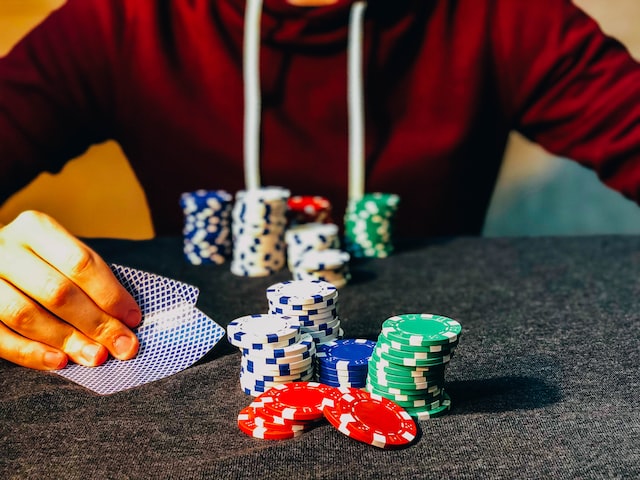Gambling has been a part of human culture for centuries, with its roots deeply embedded in our history. From ancient civilizations rolling dice to modern casinos offering a myriad of games, the allure of gambling has remained constant. But what drives individuals to engage in this risky behavior? To truly understand gambling, we must delve into the psychology of the gambler’s mind.
The Thrill of Uncertainty
One of the key psychological elements that draws people to gambling is the thrill of uncertainty. The moment a dice is rolled, a card is flipped, or a roulette wheel spins, a rush of excitement courses through the gambler’s veins. It’s the anticipation of not knowing the outcome that keeps them coming back for more.
Psychologically, this phenomenon can be attributed to the brain’s reward system. When a gambler places a bet, the brain releases dopamine, a neurotransmitter associated with pleasure and reward. The uncertainty of the outcome heightens this dopamine release, creating a euphoric sensation that some individuals find addictive.
The Escape from Reality
Gambling also serves as an escape from the everyday challenges and stresses of life. For many, the casino or the online betting platform becomes a sanctuary where they can momentarily forget their problems. The act of gambling provides a temporary reprieve from life’s hardships, making it an attractive option for those seeking an emotional escape.
In essence, gambling offers a form of psychological relief. It allows individuals to shift their focus away from their worries and immerse themselves in the game, where only the cards, dice, or reels matter. This temporary detachment from reality is a potent draw for many gamblers.
The Illusion of Control
Another fascinating aspect of the psychology of gambling is the illusion of control. Even though most casino games are based on chance, gamblers often convince themselves that they have some degree of control over the outcome. This belief can lead to overconfidence and risky behavior.
This illusion of control is fueled by the gambler’s perception that their decisions, strategies, or lucky charms can influence the game’s result. While there might be some skill involved in certain games, the underlying randomness can never be fully tamed. However, this perception of control keeps gamblers engaged, as they believe they can outsmart the odds.
Social Connection
For some, gambling is not just about winning or losing money; it’s also about the social aspect. Casinos and betting platforms offer a unique environment where people can come together, interact, and share their experiences. The camaraderie among gamblers can be a powerful motivator to continue playing.
Social interaction in gambling settings provides a sense of belonging and community. Whether it’s chatting with fellow players at a poker table or celebrating together after a big win, these social connections can be as rewarding as the monetary aspect of gambling.

The Dark Side: Addiction
While the psychology of gambling can be fascinating, it also has a dark side. For a subset of individuals, the thrill of uncertainty, the escape from reality, the illusion of control, and the social connections can become overwhelming. This leads to the development of gambling addiction, a serious psychological disorder.
Gambling addiction, also known as compulsive gambling or ludomania, can have devastating effects on individuals and their loved ones. It often spirals out of control, causing financial ruin, strained relationships, and a host of mental health issues. Understanding the psychological triggers of gambling addiction is crucial for both prevention and treatment.
Conclusion
In conclusion, the psychology of gambling is a complex and multifaceted field. It involves a delicate interplay of emotions, rewards, and perceptions that draw individuals into this world of chance and uncertainty. While some can enjoy gambling as a form of entertainment, others may fall victim to its addictive allure.
To fully comprehend the psychology of gambling, we must acknowledge its appeal as well as its potential dangers. It is essential to promote responsible gambling practices and provide support to those who may be struggling with addiction. By understanding the gambler’s mind, we can take steps toward creating a healthier relationship with this age-old pastime.
rel=”nofollow”
